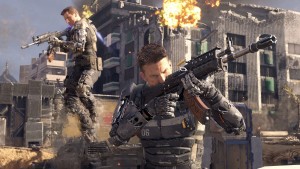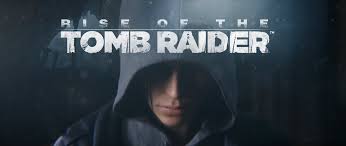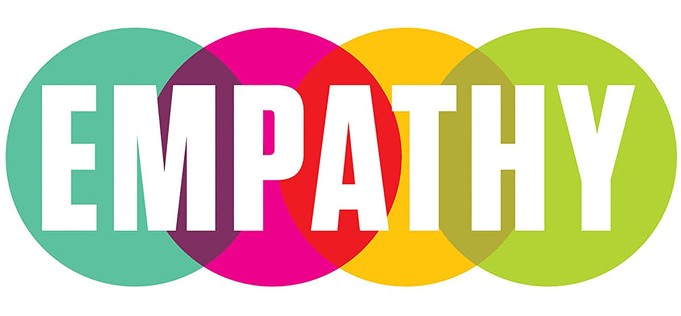
In Beyond Choices, Miguel Sicart addresses issues of moral and ethical choices and how games designed in such a way to draw players into ethical dilemmas, moral reflection, and immersive experiences. This War of Mine: The Little Ones (TWoM), by placing the player into unfamiliar territory and in an unfamiliar role, crafts a space where the player’s decisions take on a role of their own with character like qualities. This type of “play” lends itself to Ian Shaw’s definition in his article “Playing War” in which ‘play’ becomes the “the co-mingling between self and world” and “this co-mingling is always- already a political moment, locked within wider representational logics (whether military, colonial, or racist and so on).” Looking at play from this intersection, TWoM reveals a culture of war players are not generally accustomed to where ethics and morals become the driving force in determining how the narrative unravels; more specifically, TWoM takes a more feminist approach to its ethical framework than other games with war as the central theme.
 To take a more comparative approach, first person shooters like Call of Duty: Black Ops III have a varying perspective of war where terror is fought and good and evil are (usually) distinct in this narrative of us versus them. War, in this setting, is about winning; it revolves around this need to battle evil, take down terrorists and enemies, and advance in militant expertise. Morals and ethics are, generally speaking, under currents left unchallenged in a romanticized experience of “by any means necessary.” Shaw argues that “When users play video games like Call of Duty: Modern Warfare 2, they are transitioning into an ideologically assembled space, locked within military common sense”. Subsequently, the civilian temporarily becomes the soldier in places and spaces media has depicted as a threat to the American people (i.e., motifs of the Middle East in CoD). TWoM offers a drastically different experience where good and evil are not easily perceived or teased apart. They are one, and even “good” decisions lead to unforeseeable and damaging consequences – as all real life decisions may. In thinking about moral and ethics, Sicart defines morality as “a system of rules for guiding human conduct and also principles for evaluating those rules.” He goes on to argue that all decisions, actions, and choices are potentially moral and function within our individual lives as well as within the overall process of establishing societal guidelines. According to Sicart, ethics, in retrospect, is simultaneously the study of “the moral system and the development of the principles of evaluation that govern our rules of conduct.” TWoM has undone the usual gameplay experience in that the game continues to progress even if the player’s decision is to do nothing; because even that decision has ripple effects in the unraveling of the characters’ experiences. Perhaps they leave, die from neglected wounds or illnesses, or become so depressed and utterly hopeless that they commit suicide one cold and desperate night. More commonplace war games stop when the player stops. There is no progression – the only way to finish, or win, is to continue following the more linear structure paved for the shooter’s combat boots. While there are moral debates that player may engage with in these games, the only decision offered in face of such moral dilemmas is disengaging when the systems of the game fail to align with the internal systems of the user.
To take a more comparative approach, first person shooters like Call of Duty: Black Ops III have a varying perspective of war where terror is fought and good and evil are (usually) distinct in this narrative of us versus them. War, in this setting, is about winning; it revolves around this need to battle evil, take down terrorists and enemies, and advance in militant expertise. Morals and ethics are, generally speaking, under currents left unchallenged in a romanticized experience of “by any means necessary.” Shaw argues that “When users play video games like Call of Duty: Modern Warfare 2, they are transitioning into an ideologically assembled space, locked within military common sense”. Subsequently, the civilian temporarily becomes the soldier in places and spaces media has depicted as a threat to the American people (i.e., motifs of the Middle East in CoD). TWoM offers a drastically different experience where good and evil are not easily perceived or teased apart. They are one, and even “good” decisions lead to unforeseeable and damaging consequences – as all real life decisions may. In thinking about moral and ethics, Sicart defines morality as “a system of rules for guiding human conduct and also principles for evaluating those rules.” He goes on to argue that all decisions, actions, and choices are potentially moral and function within our individual lives as well as within the overall process of establishing societal guidelines. According to Sicart, ethics, in retrospect, is simultaneously the study of “the moral system and the development of the principles of evaluation that govern our rules of conduct.” TWoM has undone the usual gameplay experience in that the game continues to progress even if the player’s decision is to do nothing; because even that decision has ripple effects in the unraveling of the characters’ experiences. Perhaps they leave, die from neglected wounds or illnesses, or become so depressed and utterly hopeless that they commit suicide one cold and desperate night. More commonplace war games stop when the player stops. There is no progression – the only way to finish, or win, is to continue following the more linear structure paved for the shooter’s combat boots. While there are moral debates that player may engage with in these games, the only decision offered in face of such moral dilemmas is disengaging when the systems of the game fail to align with the internal systems of the user.
The very design of TWoM encourages (forces) players to self-reflect on their play choices through an interaction with each character pre and post action. For example, helping children save their mother by giving away your last source of medicine may lift the morale of the community: I’m glad we helped them, we did the right thing, I hope their mother will be okay, we can get more supplies later. The children will later return and say how well their mother is doing. The question remains: Did anyone in your care die as a result? Did you have to kill anyone to save a life? If so, was it worth it? What’s more, the characters remember every decision ensued. If someone died, they’ll reflect on how things would be different had they kept the resources to themselves. If the mother died, the same question is pondered, but in reverse: I wonder if she’d still be alive had we helped. Those poor children. The level of interpretation needed in order to wiggle between these rules and spaces of morality and ethics is unfurled and blanketed over real-life experiences as TWoM modulates actions found in the real world. In “Self Reflection and Morality in Critical Games”, Elisabeta Toma, these “experiential metaphors that shape [players] understanding of daily life situations” causes users to judge themselves by their play. This muddies the waters of war as cultural and ethical dimensions are not flattened in the same ways in TWoM as they often are in first person shooters. It’s complicated and this complication is an integral part of the game’s aesthetics. For Alison Jagger, mangled in this complication is a sort of resistance to the more masculine perspective of war, by introducing players to the feminine traits of emotion, trust, absence of hierarchy, interdependence, community, sharing, process, life and connection (Feminist Ethics). Stories, personal stories, are a pivotal construct. Users are introduced to the characters and given intimate details of their “past” lives, their strengths, their weaknesses, their likes and dislikes as well as their hopes and dreams. Letters and pictures are often found on refrigerators, cork-boards, nightstands and tables in the homes broken into and rummaged through for supplies. Everyone is connected. Everyone is affected. As the game progresses, you learn more about the characters – it’s a relationship of sorts that you engage with. Your actions, decisions, determine the details they reveal to you. The more you learn, the more influential their character becomes in your decision making process – it’s a collaborative process of moral learning as you become the co-author of the game.
Essentially, while the game itself is situated in a black and white design, the play-through is not. The user is forced to reconcile their ethics in light of attempting to survive war. It is a slow-paced, methodical play that infuses the user with a sense of constant awareness and emotional angst awaiting the rising and falling of the sun. I often found myself attempting to think as a civilian surviving war, which often led to drudging up personal wars I had experienced: How did I engage in situations that were hostile towards me and my community? Though not often explored, these personal connections create emotional attachments to the characters as well as humanity; empathy emerges and encircles contemporary projections of war survivors from those motifs most often depicted in first person shooters. More interesting, however, is the idea of tearing down traditional lenses of ethics and engaging with a feminist perspective in what is often thought of a masculine domain, as a masculine activity (both war and games). Though not explicitly stated above, all characters, men and women, are able to engage in physical feats of rummaging, fighting, building, protecting, as well as experiencing and expressing emotional traumas. Women are not depicted as weaker vessels needed to stay home, and some are even characterized as having been hardened and less empathetic than the men they’re co-surviving with. Subsequently, to further explore this game would require using [feminist] ethics as a mode of inquiry rather than a set of criteria. If “by any means necessary” results in a character being trafficked, a child being irreversibly traumatized, or another committing suicide, whose ethics are we operating within and how does one “win” in a game where the effects of war outlive the sounds of snipers in your backyard?




